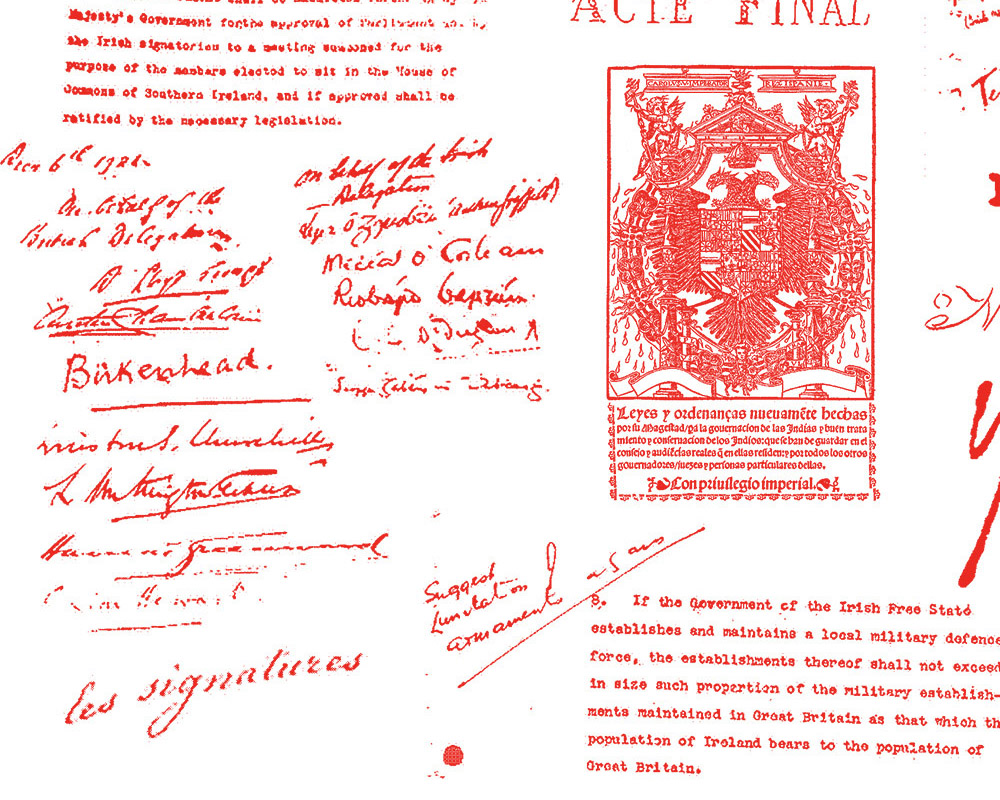


The Code of Hammurabi
Babilónia, 1755–1750 a.C.
In future time, through all coming generations, let the king, who may be in the land, observe the words of righteousness which I have written on my monument; let him not alter the law of the land which I have given, the edicts which I have enacted; my monument let him not mar. If such a ruler have wisdom, and be able to keep his land in order, he shall observe the words which I have written in this inscription; the rule, statute, and law of the land which I have given; (...) let him rule his subjects accordingly, speak justice to them, give right decisions, root out the miscreants and criminals from this land, and grant prosperity to his subjects.
***
(...)
195. If a son strike his father, his hands shall be hewn off.
196. If a man put out the eye of another man, his eye shall be put out.
197. If he break another man's bone, his bone shall be broken.
198. If he put out the eye of a freed man, or break the bone of a freed man, he shall pay one gold mina.
199. If he put out the eye of a man's slave, or break the bone of a man's slave, he shall pay one-half of its value.
(...)
221. If a physician heal the broken bone or diseased soft part of a man, the patient shall pay the physician five shekels in money.
222. If he were a freed man he shall pay three shekels.
223. If he were a slave his owner shall pay the physician two shekels.
(...)
228. If a builder build a house for some one and complete it, he shall give him a fee of two shekels in money for each sar of surface.
229 If a builder build a house for some one, and does not construct it properly, and the house which he built fall in and kill its owner, then that builder shall be put to death.
230. If it kill the son of the owner, the son of that builder shall be put to death.
231. If it kill a slave of the owner, then he shall pay slave for slave to the owner of the house.
232. If it ruin goods, he shall make compensation for all that has been ruined, and inasmuch as he did not construct properly this house which he built and it fell, he shall re-erect the house from his own means.
(…)
LAWS of justice which Hammurabi, the wise king, established. A righteous law, and pious statute did he teach the land. Hammurabi, the protecting king am I.
No futuro, e através de todas as gerações vindouras, que o rei que estiver nesta terra observe as palavras de justiça que escrevi no meu monumento; que ele não altere a lei da terra que estabeleci, os decretos que promulguei; que ele não danifique o meu monumento. Se tal governante tiver sabedoria e for capaz de manter a sua terra em ordem, deverá observar as palavras que escrevi; a regra, o estatuto e a lei da terra que aqui estabeleci; (...) que ele governe os seus súbditos de acordo com estas leis, que lhes seja justo, que tome decisões corretas, que elimine os malfeitores e criminosos desta terra, e que conceda prosperidade aos seus súbditos.
(...)
Se um filho ferir o seu pai, as suas mãos serão cortadas.
Se um homem cegar o olho de outro homem, o seu olho será cegado.
Se ele partir o osso de outro homem, o seu osso será partido.
Se ele cegar o olho de um homem livre ou partir o osso de um homem livre, ele deverá pagar uma mina de ouro.
Se ele cegar o olho de um escravo ou partir o osso de um escravo, deverá pagar metade do seu valor.
(...)
Se um médico curar um osso partido ou alguma parte doente de um homem, o paciente deverá pagar ao médico cinco shekels em dinheiro.
Se ele curar um homem livre, deverá pagar três shekels.
Se ele curar um escravo, o seu mestre deverá pagar ao médico dois shekels.
(...)
Se um construtor construir uma casa para alguém e a terminar, deverá receber um pagamento de dois shekels em dinheiro por cada sar de superfície.
Se um construtor construir uma casa para alguém e não a terminar devidamente, e a casa que construiu desabar e matar o seu proprietário, então o construtor deverá ser condenado à morte.
Se matar o filho do proprietário, o filho do construtor será condenado à morte.
Se matar um escravo do proprietário, então deverá pagar escravo por escravo ao dono da casa.
Se arruinar bens, deverá compensar tudo o que foi arruinado, e, visto que não construiu devidamente a casa que desabou, deverá reconstrui-la pelos seus próprios meios.
(...)
LEIS de justiça que Hammurabi, o sábio rei, estabeleceu. Uma lei justa e um estatuto piedoso que ele ensinou à terra. Hammurabi, o rei protetor, sou eu.